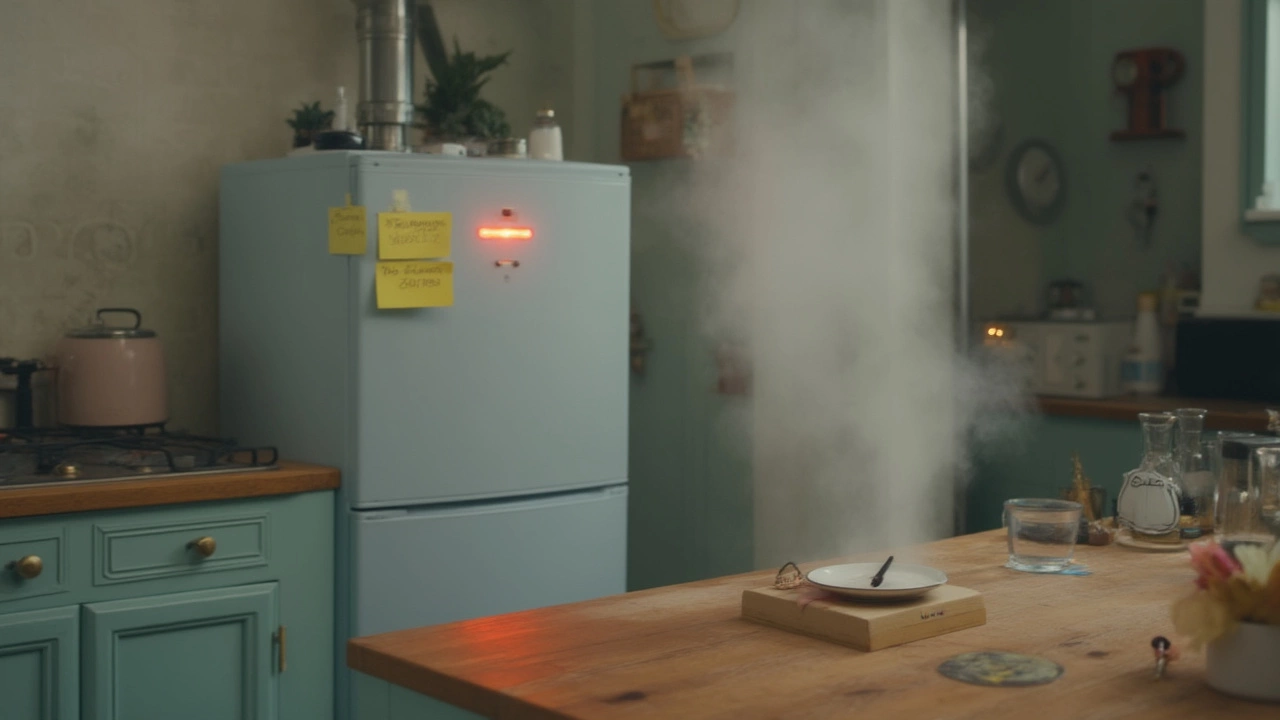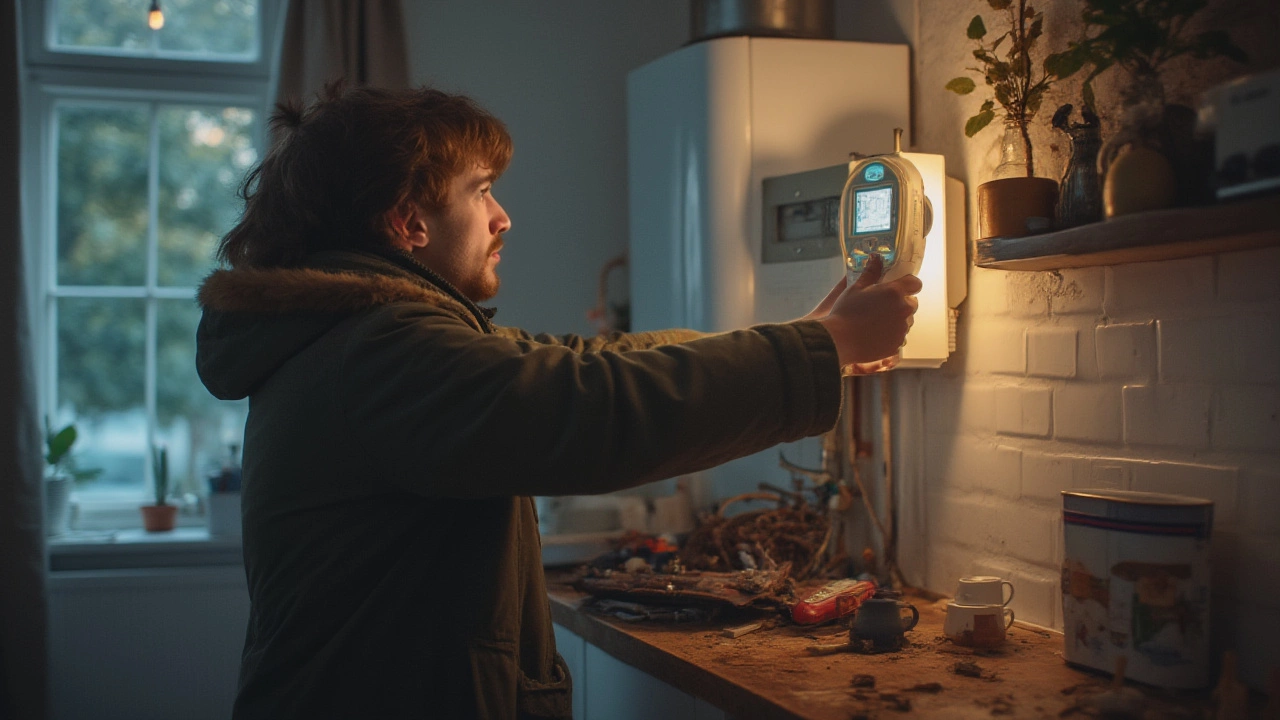Your home’s been humming along, but then you hear a strange hiss, maybe a few groans, and suddenly—ice-cold water from the shower. The radiators are just there, lifeless. Panic is almost instant, especially if it’s December. But is a broken boiler really an emergency, or just a big inconvenience? The answer is a bit more complicated than you’d think. Some times, a busted boiler is just annoying. Other times, it’s a straight-up, stop-what-you’re-doing kind of emergency. Either way, most people only notice boilers when they stop working, and by then, things can get messy fast.
What Makes a Broken Boiler an Emergency?
It’s tempting to think a broken boiler is just another repair task—but the risks go deeper than that. First up: safety. The most dangerous boiler failures are about more than just lost heat. Carbon monoxide leaks, for example, can be truly deadly. In the UK, data from the Gas Safe Register points out that boilers and heating systems are responsible for dozens of carbon monoxide incidents each year—some lethal. Boiler emergency situations often mean there’s risk to life or property, not just discomfort.
Next is water. If you see water leaking from your boiler or pipes, that can rot your walls, damage flooring, and even destabilize surrounding structures. Flooding from a broken boiler may be minor—a puddle on the floor—or can flood entire rooms, especially in flats and basements.
No heating in winter is also a big deal. Hypothermia is not just a word you hear on documentaries. If you’ve got elderly folks, babies, or anyone with a chronic illness living at home, the NHS recommends fixing heating quickly because body temperature drops fast in cold homes. According to Public Health England, nearly 50,000 excess deaths in a typical UK winter are linked to cold homes—and boilers are right at the center of home heating.
Here’s when you should treat a broken boiler as an emergency:
- The boiler is leaking water or gas.
- You smell gas or suspect a gas leak—call the emergency gas line, don’t wait.
- You suspect a carbon monoxide leak (signs: headaches, dizziness, sudden tiredness, or the CO alarm goes off).
- The heating and hot water stop working in freezing weather, especially with vulnerable people at home.
- The boiler is making strange noises (banging, whistling, gurgling), or switches itself off repeatedly.
Other times, maybe it’s not quite 999 territory. If it’s summer and the only issue is lack of hot water, you can probably book a regular repair. Same if you’ve got backup electric heaters and everyone’s healthy.
| Boiler Problem | Emergency? |
|---|---|
| No heating in winter with vulnerable people | Yes |
| Water leak from boiler casing | Yes |
| No hot water (summer, healthy adults only) | No |
| Suspected gas leak | YES - Call emergency! |
| Carbon monoxide alarm sounds | YES - Evacuate & call emergency |
| Strange noises but working boiler | Maybe, call for advice |
The upshot: err on the side of caution. Unusual smells, noises, leaks, or a total loss of heating when it’s cold outside always call for quick action.

What Causes a Boiler to Break Down?
Knowing what goes wrong with boilers isn’t just for engineers with oily hands. When you spot the warning signs early, you can often head off a disaster. Boilers are weirdly dramatic—sometimes they work spotless for years before conking out in the middle of the coldest night. The most common causes aren’t always obvious, but here’s a breakdown you’ll want to remember.
First, pressure problems. If your boiler’s pressure is too low, you’ll often get zero heat coming out. Too high, and it’s danger zone: leaks, blown seals, or even the whole thing shutting down. Many new boilers have a gauge—make sure it’s in the green zone (usually between 1 and 1.5 bar when cold).
Then there’s water flow. If pipework freezes (which happens way more than you’d think), your boiler can’t do its thing. Frozen condensate pipes are notorious—especially in older homes in the UK, where outside temperatures dip below zero. Once those pipes freeze, the system blocks itself as a safety feature.
Electrical issues are another headache. Boilers rely on control panels, sensors, and circuit boards. A sudden power outage, a blown fuse, or dodgy wiring can shut the whole operation down. If you hear clicking and get nothing when you turn on the heat, electricity could be the culprit.
Mechanical failures pop up as thermostats wear out, valves stick, or pump motors burn out. Anything that moves is likely to break, eventually. Some boilers throw out fault codes on a tiny screen—write those down, as they can clue an engineer in on what’s wrong right away.
Maintenance or lack thereof matters, too. British Gas published a survey where 55% of homeowners admitted to skipping their annual boiler service. Skipping checks means things like scale buildup, blocked filters, or clogged burners go unnoticed until the worst moment. A bit like ignoring your car’s oil change—fine, until it’s very much not fine.
- Low boiler pressure: Often caused by leaks or bleeding radiators.
- Thermostat problems: Old, inaccurate, or improperly set thermostats stop your heating from turning on when needed.
- Airlocks or sludge buildup: Dirty or corroded systems prevent hot water from circulating.
- Ignition failure: Spark issues, broken electrodes, or blocked pilot lights.
- Limescale buildup: Especially common in hard water areas—look for kettling noises (a deep rumble).
Here’s something that might surprise you: while many boiler failures happen in winter, a ton of breakdowns actually start in autumn, when people flip the heat back on and dormant problems roar into life.
Modern boilers have built-in safety measures. They’ll shut down at the first sign of serious trouble—gas valves close, pilot lights go out, and temperature sensors kill the heat. But don’t assume that means you’re totally safe. When in doubt, treat weird noises, funny smells, or anything leaking as a problem worth urgent attention. Every year, repair companies get the same panicked calls—and a lot of what causes breakdowns are preventable with a little know-how.
Popular brands like Worcester Bosch and Vaillant, for example, even include specific error codes and troubleshooting tips in their manuals—worth glancing at if yours starts acting up.

What to Do When the Boiler Breaks Down
Now the crucial question: the boiler’s not working—what now? Don’t panic. A quick action plan boosts comfort, keeps your family safe, and sometimes even prevents bigger issues.
First: check for obvious danger. If there’s a gas smell, open windows, get everyone outside fast, and call the emergency gas line immediately. Boilers are safe when installed and maintained right, but leaks are not something to take chances with. No fiddling, no DIY—just leave and call the professionals.
Next: carbon monoxide alarms. If it’s going off, evacuate the house, call the emergency services, and don’t go back inside until it’s checked. Remember, carbon monoxide is invisible and odorless. It kills about 60 people in the UK each year. If you don’t have a CO alarm, now’s the time to get one—they cost less than £20 and can be literal lifesavers.
If you see water leaking, switch off the boiler and the electricity at the main switch. Put down towels or a bucket to catch water, but don’t try to open the unit or poke around inside. Water plus electricity is a mix no one needs.
If you’ve just lost heat or hot water but can’t see any leaks or smell anything odd, check the pressure gauge. Too low? You might be able to top it up (most combi boilers have an easy-access filling loop), but if you’re not sure, call a pro. Check your thermostat—is it on, is it set to the right temperature, and have the timer and controls reset after a power outage?
No joy? Check for frozen pipes outside—especially the thin condensate pipe leading from your boiler. If it’s rock solid, pour warm (not boiling) water over it, and try the boiler again. If it still won’t fire up, book a professional repair.
When you call for help, have this info handy:
- Boiler make and model
- Any error codes or description of lights
- What you’ve already checked or tried
- If there are vulnerable people in the house (elderly, babies, disabled)
- The history of boiler service (roughly when it was last checked)
Need a stop-gap? Portable electric heaters can keep a room warm. Hot water bottles, extra layers, and staying in one room help cut heat loss while you wait for repair. If you’ve got no hot water, boiling the kettle for shallow baths is an option for a night or two.
A few smart tips to avoid future breakdowns:
- Book annual boiler service every summer, before cold weather hits.
- Install carbon monoxide alarms near your boiler and bedrooms.
- Bleed your radiators regularly for maximum efficiency.
- Don’t ignore strange noises or leaks, even if the boiler seems to be working fine.
- If you move into a new home, get the boiler checked before winter arrives.
There’s one more thing—keep a record of repairs, what was fixed, and the name of the person who did it. Most boilers need a paper or digital logbook to keep warranties valid. Plus, if you ever rent out your place, annual gas safety checks are required by law in the UK; landlords must provide these to tenants every 12 months.
Bottom line: boilers aren’t glamorous, but when they break, it can get serious fast. Whether it’s an emergency or just a hassle depends on the details—but the best move is always to get any signs of trouble checked out quickly, especially during cold months or when safety’s at risk. Keep an eye out, keep warm, and don’t ignore that bang or drip coming from the airing cupboard.

I am an expert in the services industry with a focus on appliance repair. My passion lies in understanding how things work and educating others in simple, engaging ways. This enthusiasm fuels my writing, where I delve into topics around appliance maintenance and troubleshooting. I aim to make these subjects clear and accessible to all readers.